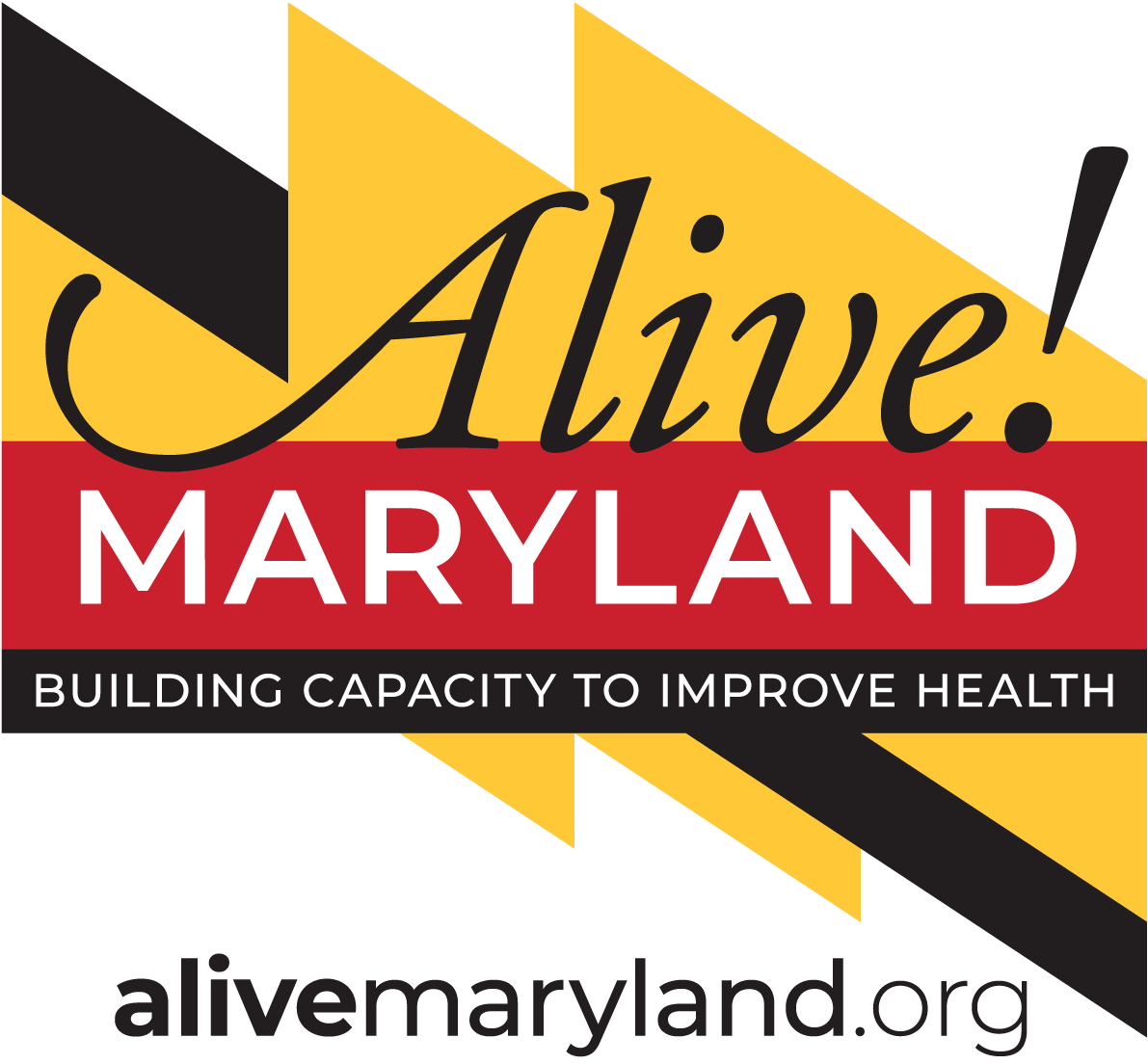

The objective of this course is to provide participants with a comprehensive understanding of HIV self-testing, including its benefits, limitations, and proper use. Participants will garner a clear understanding of how HIV self-testing works in Maryland. They will also understand the importance of seeking confirmatory testing and counseling. Overall, this course aims to level set participants with a foundational knowledge and understanding of HIV self-testing that will enable them to make informed decisions and provide accurate information to their peers.
Learning Objectives:
By the end of this course the learner will be able to:
- Describe HIV self-testing in Maryland.
- Identify benefits and limitations of HIV self-testing.
- Explain the importance of seeking confirmatory testing and counseling after receiving a reactive HIV self-test result.
- Discuss confidentiality and informed consent.

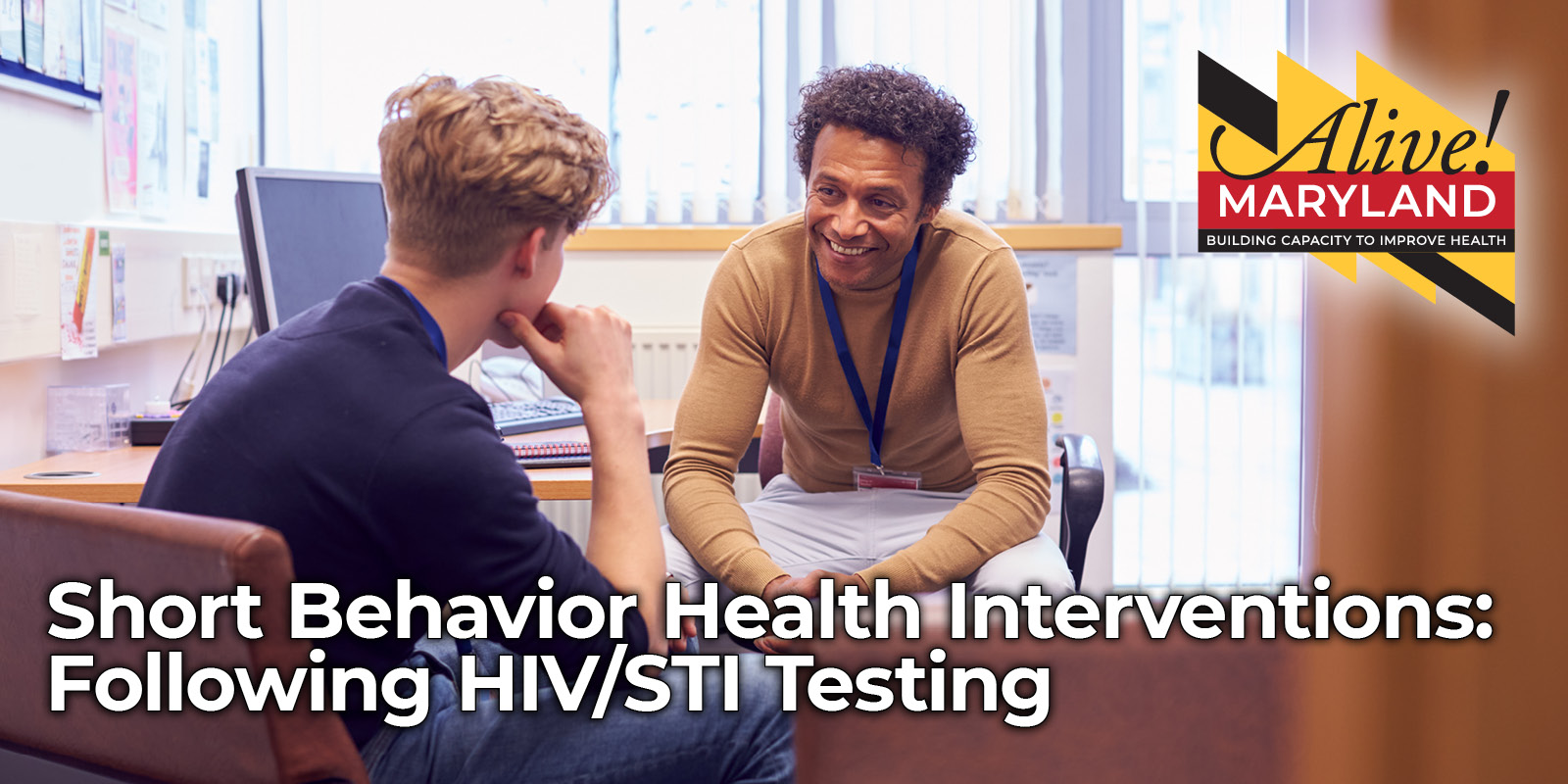
In this webinar, medical professionals will learn short behavioral interventions they can use before, during, and after providing clients' with test results, to make the process more comfortable and relatable. Short behavioral interventions are based in human psychology and are practical, consistent, and short term. By implementing these interventions into daily practice, the goal is that clients', including those from special populations, will have a better experience in your office and a greater likelihood of behavior change.
Learning Objectives:
Upon completion of this course, participants will be able to:
Discuss the role that human psychology plays in creating short behavioral interventions in medical practice.
List at least 3 practical things they can do to set the stage for conversations about test results.
Identify at least 3 practical things they can do to make the process of sharing test results more comfortable for the client.
Discuss how to adapt short behavioral interventions to special populations such as minors, sex workers, and people with different abilities.
Explain how personal bias may impact conversations about test results.
Note: This session does NOT offer continuing education credits.

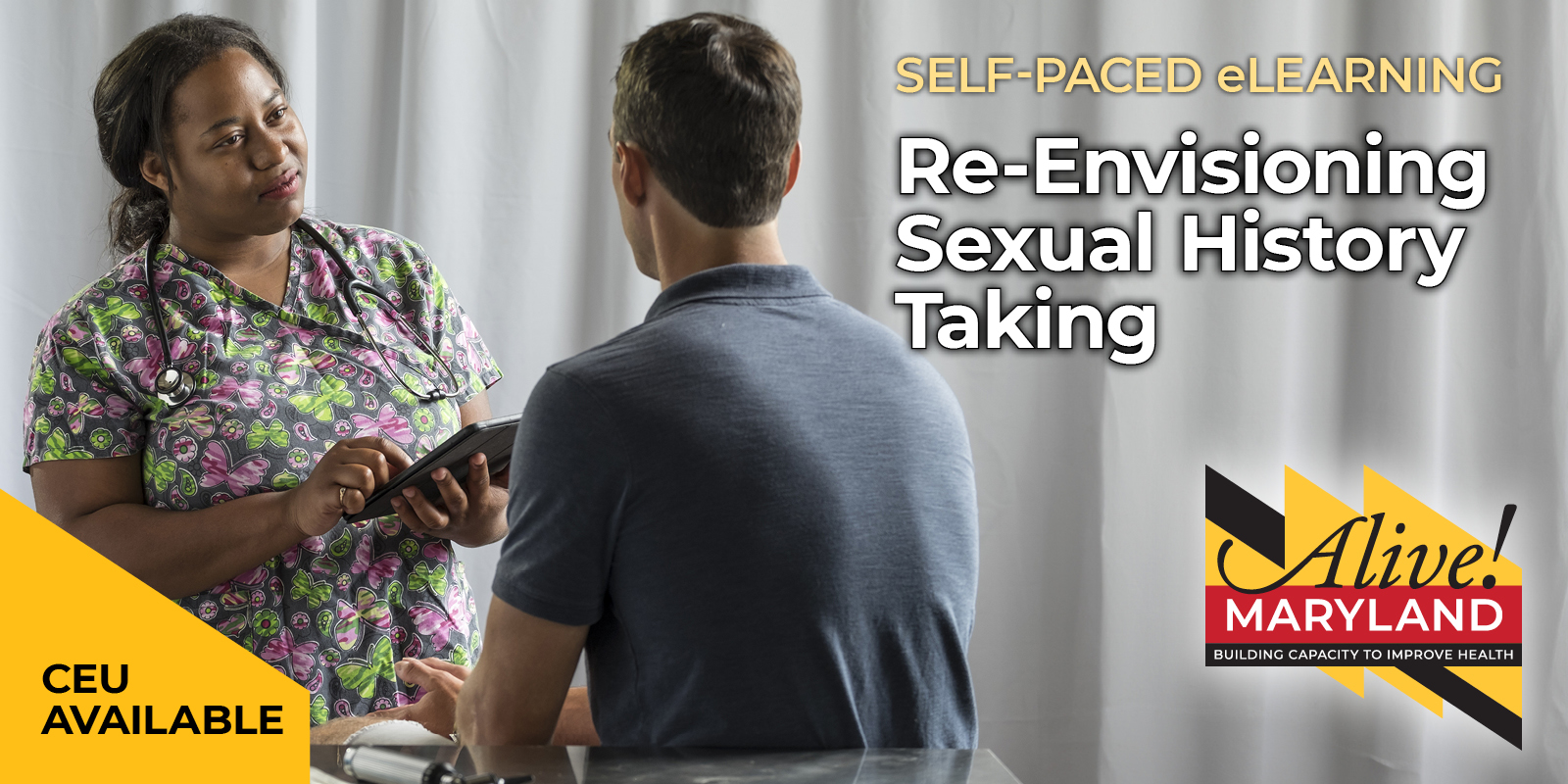
Taking a patient’s sexual history allows healthcare professionals to provide high-quality patient care by appropriately assessing and screening individuals for a broad range of sexual health concerns. A sexual history should be taken as part of routine health care, as well as when there are symptoms or physical exam findings suggestive of STIs. This self-paced learning module will address the 6 P’s of sexual history taking and strategies to ensure a comprehensive and inclusive approach for all patients.
Release Date: August 14, 2023
Expiration Date: August 14, 2024
UAN: JA4008162-9999-23-293-L02-PTarget Audience
This activity is intended for physicians, pharmacists, registered nurses, PAs, psychologists, social workers and other healthcare providers engaged in the care of patients with HIV.
Educational Objectives
After completing this activity, the participant should be better able to:
- Recall the 6Ps of a sexual history
- Identify opportunities to reduce barriers to sexual history taking
- Apply strategies to incorporate a sexual history into patient visits
Faculty
Diane Bruessow MPAS, PA-C, DFAAPA Yale School of Medicine
Disclosure of Conflicts of Interest
Postgraduate Institute for Medicine (PIM) requires faculty, planners, and others in control of educational content to disclose all their financial relationships with ineligible companies. All identified conflicts of interest (COI) are thoroughly vetted and mitigated according to PIM policy. PIM is committed to providing its learners with high quality accredited continuing education activities and related materials that promote improvements or quality in healthcare and not a specific proprietary business interest of an ineligible company.
The faculty have nothing to disclose.
The PIM planners and others have nothing to disclose. The HealthHIV planners and others have nothing to disclose.
Joint Accreditation Statement
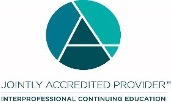 In
support of improving patient care, this activity has been planned and implemented by the Postgraduate Institute for Medicine and HealthHIV. Postgraduate Institute for Medicine is jointly accredited by the Accreditation Council for Continuing Medical
Education (ACCME), the Accreditation Council for Pharmacy Education (ACPE), and the American Nurses Credentialing Center (ANCC), to provide continuing education for the healthcare team.
In
support of improving patient care, this activity has been planned and implemented by the Postgraduate Institute for Medicine and HealthHIV. Postgraduate Institute for Medicine is jointly accredited by the Accreditation Council for Continuing Medical
Education (ACCME), the Accreditation Council for Pharmacy Education (ACPE), and the American Nurses Credentialing Center (ANCC), to provide continuing education for the healthcare team.
Physician Continuing Medical Education
The Postgraduate Institute for Medicine designates this live activity for a maximum of 1 AMA PRA Category 1 Credit(s)™. Physicians should claim only the credit commensurate with the extent of their participation in the activity.
Continuing Nursing Education
TThe maximum number of hours awarded for this Continuing Nursing Education activity is 1.0 contact hours.
Continuing Pharmacy Education
Postgraduate Institute for Medicine designates this continuing education activity for 1.0 contact hour(s) (0. 10 CEUs) of the Accreditation Council for Pharmacy Education.
Continuing Physician Assistant Education
 Postgraduate Institute for Medicine has been authorized by the American Academy
of PAs (AAPA) to award AAPA Category 1 CME credit for activities planned in accordance with AAPA CME Criteria. This activity is designated for 1.0 AAPA Category 1 CME credits. PAs should only claim credit commensurate with the extent of their
participation.
Postgraduate Institute for Medicine has been authorized by the American Academy
of PAs (AAPA) to award AAPA Category 1 CME credit for activities planned in accordance with AAPA CME Criteria. This activity is designated for 1.0 AAPA Category 1 CME credits. PAs should only claim credit commensurate with the extent of their
participation.
Continuing Social Work Education
![]() As a Jointly Accredited Organization, Postgraduate Institute
for Medicine is approved to offer social work continuing education by the Association of Social Work Boards (ASWB) Approved Continuing Education (ACE) program. Organizations, not individual courses, are approved under this program. State and provincial
regulatory boards have the final authority to determine whether an individual course may be accepted for continuing education credit. Postgraduate Institute for Medicine maintains responsibility for this course. Social workers completing this
course receive 1.0 Clinical continuing education credits.
As a Jointly Accredited Organization, Postgraduate Institute
for Medicine is approved to offer social work continuing education by the Association of Social Work Boards (ASWB) Approved Continuing Education (ACE) program. Organizations, not individual courses, are approved under this program. State and provincial
regulatory boards have the final authority to determine whether an individual course may be accepted for continuing education credit. Postgraduate Institute for Medicine maintains responsibility for this course. Social workers completing this
course receive 1.0 Clinical continuing education credits.
Continuing Psychologist Education
Continuing Education (CE) credits for psychologists are provided through the co-sponsorship of the American Psychological Association (APA) Office of Continuing Education in Psychology (CEP). The APA CEP Office maintains responsibility for the content of the programs.
Credit Designation: This program offers 1 continuing education credits for psychologists.
Interprofessional Continuing Education
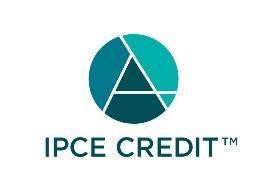 This activity was planned by and for
the healthcare team, and learners will receive 1 Interprofessional Continuing Education (IPCE) credit for learning and change.
This activity was planned by and for
the healthcare team, and learners will receive 1 Interprofessional Continuing Education (IPCE) credit for learning and change.
Disclosure of Unlabeled Use
This educational activity may contain discussion of published and/or investigational uses of agents that are not indicated by the FDA. The planners of this activity do not recommend the use of any agent outside of the labeled indications. The opinions expressed in the educational activity are those of the faculty and do not necessarily represent the views of the planners. Please refer to the official prescribing information for each product for discussion of approved indications, contraindications, and warnings.
Disclaimer
Participants have an implied responsibility to use the newly acquired information to enhance patient outcomes and their own professional development. The information presented in this activity is not meant to serve as a guideline for patient management. Any procedures, medications, or other courses of diagnosis or treatment discussed or suggested in this activity should not be used by clinicians without evaluation of their patient's conditions and possible contraindications and/or dangers in use, review of any applicable manufacturer's product information, and comparison with recommendations of other authorities.


This webinar is tailored for healthcare professionals and their supporters seeking to optimize Pre-Exposure Prophylaxis (PrEP) implementation. This session delves into identifying ideal PrEP candidates, linking and retaining clients effectively, and addressing prevalent barriers to PrEP access. Attendees will gain practical insights and strategies to enhance their PrEP navigation skills, ultimately contributing to more effective HIV prevention efforts
Release Date: January 24, 2024
Expiration Date: January 24, 2025
UAN: JA4008162-9999-23-110-H02-PTarget Audience
This activity is intended for physicians, pharmacists, registered nurses, PAs, psychologists, social workers and other healthcare providers engaged in the care of patients with HIV.
Educational Objectives
After completing this activity, the participant should be better able to:
- Identify the ideal PrEP candidate
- Recognize how to link and retain clients
- Identify barriers to PrEP
- List resources to PrEP
Faculty
Dr. Immerine Monet Ouwinga, MD, Board Certified Family Medicine, CCI Greenway Program and Medical Director of Title X
Disclosure of Conflicts of Interest
Postgraduate Institute for Medicine (PIM) requires faculty, planners, and others in control of educational content to disclose all their financial relationships with ineligible companies. All identified conflicts of interest (COI) are thoroughly vetted and mitigated according to PIM policy. PIM is committed to providing its learners with high quality accredited continuing education activities and related materials that promote improvements or quality in healthcare and not a specific proprietary business interest of an ineligible company.
The faculty reported the following relevant financial relationships with ineligible entities related to the educational content of this CE activity:
The faculty presenter has nothing to disclose.
The PIM planners and others have nothing to disclose. The HealthHIV planners and others have nothing to disclose.
Joint Accreditation Statement
 In
support of improving patient care, this activity has been planned and implemented by the Postgraduate Institute for Medicine and HealthHIV. Postgraduate Institute for Medicine is jointly accredited by the Accreditation Council for Continuing Medical
Education (ACCME), the Accreditation Council for Pharmacy Education (ACPE), and the American Nurses Credentialing Center (ANCC), to provide continuing education for the healthcare team.
In
support of improving patient care, this activity has been planned and implemented by the Postgraduate Institute for Medicine and HealthHIV. Postgraduate Institute for Medicine is jointly accredited by the Accreditation Council for Continuing Medical
Education (ACCME), the Accreditation Council for Pharmacy Education (ACPE), and the American Nurses Credentialing Center (ANCC), to provide continuing education for the healthcare team.
Physician Continuing Medical Education
The Postgraduate Institute for Medicine designates this live activity for a maximum of 1.0 AMA PRA Category 1 Credit(s)™. Physicians should claim only the credit commensurate with the extent of their participation in the activity.
Continuing Nursing Education
TThe maximum number of hours awarded for this Continuing Nursing Education activity is 1.0 contact hours.
Continuing Pharmacy Education
Postgraduate Institute for Medicine designates this continuing education activity for 1.0 contact hour(s) (0. 10 CEUs) of the Accreditation Council for Pharmacy Education.
Continuing Physician Assistant Education
 Postgraduate Institute for Medicine has been authorized by the American Academy
of PAs (AAPA) to award AAPA Category 1 CME credit for activities planned in accordance with AAPA CME Criteria. This activity is designated for 1.0 AAPA Category 1 CME credits. PAs should only claim credit commensurate with the extent of their
participation.
Postgraduate Institute for Medicine has been authorized by the American Academy
of PAs (AAPA) to award AAPA Category 1 CME credit for activities planned in accordance with AAPA CME Criteria. This activity is designated for 1.0 AAPA Category 1 CME credits. PAs should only claim credit commensurate with the extent of their
participation.
Continuing Social Work Education
![]() As a Jointly Accredited Organization, Postgraduate Institute
for Medicine is approved to offer social work continuing education by the Association of Social Work Boards (ASWB) Approved Continuing Education (ACE) program. Organizations, not individual courses, are approved under this program. State and provincial
regulatory boards have the final authority to determine whether an individual course may be accepted for continuing education credit. Postgraduate Institute for Medicine maintains responsibility for this course. Social workers completing this
course receive 1.0 Clinical continuing education credits.
As a Jointly Accredited Organization, Postgraduate Institute
for Medicine is approved to offer social work continuing education by the Association of Social Work Boards (ASWB) Approved Continuing Education (ACE) program. Organizations, not individual courses, are approved under this program. State and provincial
regulatory boards have the final authority to determine whether an individual course may be accepted for continuing education credit. Postgraduate Institute for Medicine maintains responsibility for this course. Social workers completing this
course receive 1.0 Clinical continuing education credits.
Continuing Psychologist Education
Continuing Education (CE) credits for psychologists are provided through the co-sponsorship of the American Psychological Association (APA) Office of Continuing Education in Psychology (CEP). The APA CEP Office maintains responsibility for the content of the programs.
Credit Designation: This program offers 1.0 continuing education credits for psychologists.
Interprofessional Continuing Education
 This activity was planned by and for
the healthcare team, and learners will receive 1.0 Interprofessional Continuing Education (IPCE) credit for learning and change.
This activity was planned by and for
the healthcare team, and learners will receive 1.0 Interprofessional Continuing Education (IPCE) credit for learning and change.
Disclosure of Unlabeled Use
This educational activity may contain discussion of published and/or investigational uses of agents that are not indicated by the FDA. The planners of this activity do not recommend the use of any agent outside of the labeled indications. The opinions expressed in the educational activity are those of the faculty and do not necessarily represent the views of the planners. Please refer to the official prescribing information for each product for discussion of approved indications, contraindications, and warnings.
Disclaimer
Participants have an implied responsibility to use the newly acquired information to enhance patient outcomes and their own professional development. The information presented in this activity is not meant to serve as a guideline for patient management. Any procedures, medications, or other courses of diagnosis or treatment discussed or suggested in this activity should not be used by clinicians without evaluation of their patient's conditions and possible contraindications and/or dangers in use, review of any applicable manufacturer's product information, and comparison with recommendations of other authorities.